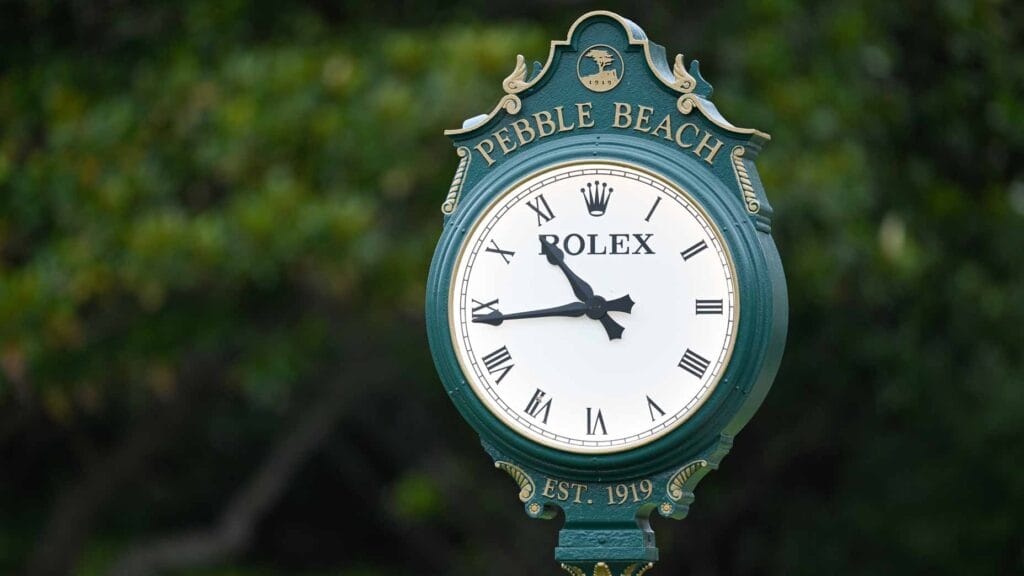Slow play has been a frequent topic of discussion on the PGA Tour recently, with players and fans alike expressing frustrations with the pace of play during tournaments. During the AT&T Pebble Beach Pro-Am, there was a notable shift in the conversation around slow play, with CBS having extra time to fill in their broadcast window due to the faster pace of play by the top stars on Tour. This change was welcomed by many, as the focus on slow play had dominated discussions for weeks leading up to the event.
Prior to the AT&T Pebble Beach Pro-Am, there had been sluggish final rounds at the American Express and Farmers Insurance tournaments, with slow play becoming a target for criticism. The PGA Tour executives met with attending media to address the slow-play crisis, discussing potential solutions such as using video review for rulings, testing out rangefinders to speed up play, and publicly sharing data on each player’s pace of play. While a shot clock was not mentioned, it gained traction as a possible solution on social media and among top professionals.
The return to Torrey Pines for the Genesis Invitational showcased that faster play is achievable on the PGA Tour. Final group rounds at Torrey Pines were completed in just over four hours, a significant improvement from the five-and-a-half hour rounds seen at the Farmers Insurance Open the week prior. Playing in twosomes off the first tee, having a smaller field, and more favorable scoring conditions all contributed to the faster pace of play at the Genesis Invitational.
Lessons learned from the contrasting pace of play at Torrey Pines include the impact of field size, scoring conditions, and tee time setups on round times. The PGA Tour is making changes to address these issues, such as limiting field sizes to provide more flexibility for groupings. While slow play remains a multi-faceted issue in professional golf, the success at Torrey Pines demonstrates that it is not an insurmountable challenge. Players are capable of completing rounds in a timely manner when put in the right conditions.
Dylan Dethier, a senior writer for GOLF Magazine/GOLF.com, highlights the importance of addressing slow play in professional golf. By encouraging faster play through course setup, field size limitations, and other adjustments, the PGA Tour can improve the overall experience for players and fans. While slow play will continue to be a challenge, it is possible to find solutions that benefit the sport as a whole. As the conversation around slow play evolves, the focus should be on creating an environment that promotes efficient and enjoyable competition for all involved.


